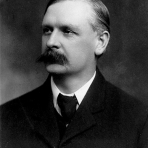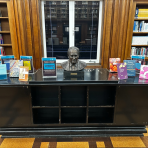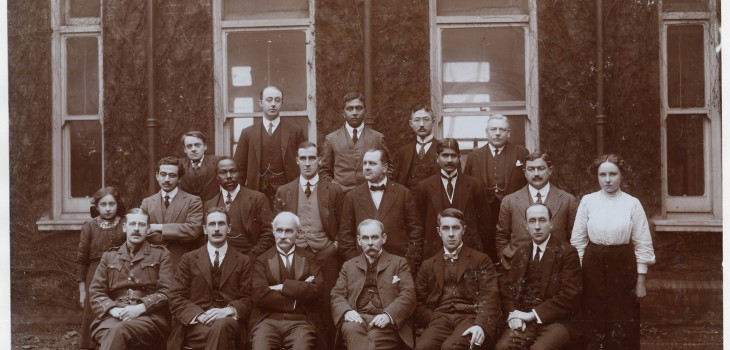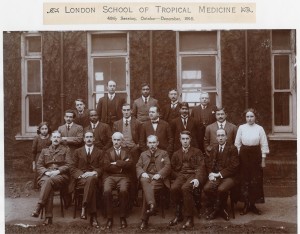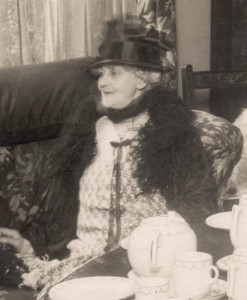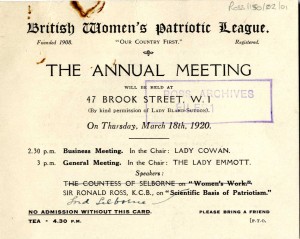By Alison Forsey
On February 6th 1918 the Representation of the People Act; legislation that allowed all men and some women to vote was put into law. Although it should be noted that not all women were granted the right to vote, this did not occur until over a decade later.
We acknowledge the centenary of this occasion by looking into the archives.
The London School of Hygiene & Tropical Medicine archives has a variety of material that could provide some notes of interest to those studying suffrage, or interested in women’s roles within the institution in its early days.
The School’s second class, or session as it was then called, took place between January and April 1900 and included 24 students, of which 3 were women. The third session in May to July of the same year also held 3 women students out of 27.
Women students at LSHTM began their studies a full 18 years before the Representation of the People Act 1918, with the first women taking on laboratory assistant roles 3 years prior to this legislation in 1915. In fact, in 1915 the women laboratory assistants even got a raise, from 5 Shillings to 8 Shillings alongside other women workers such as those working as maids or in the laundry.
While voting was still denied to women at this time, women were able to participate in the School through both work and study.
There was also women who were not a part of the school through work or study, such as Lady Mary Simpson, the wife of Sir William Simpson who was a Lecturer of Tropical Hygiene at the School and founder of the Ross Institute. Lady Simpson’s correspondence from 1917 with Sir Ronald Ross highlights her invention of a helmet with anti-mosquito protection which she wanted him to promote on her behalf.
After the Representation of the People Act passed in 1918, women were still campaigning for women’s (full) suffrage and in 1920 at the Annual Meeting for the British Women’s Patriotic League, Sir Ronald Ross was invited to speak. His speech from that event is typical for the time period, where he expressed the belief that women and men were fundamentally different but were in fact of equal importance and intellectual ability. He also described the ‘silent but steadily’ entrance to political life made by women. Ross spoke critically of the leadership of men in the past, and explained regarding the leadership during the First World War that “the world said to itself ‘the men have failed, let the women now have a try.’”
We as a society still feel the impact from the women’s suffrage movement. LSHTM as a higher education institution has certainly seen a large increase in women’s attendance, for example, as of the 2016/17 academic year there were 802 female students to 394 males students that were based in London at LSHTM (statistic taken from the London School of Hygiene & Tropical Medicine Annual Report) which demonstrates that as we celebrate 100 years of women’s suffrage, we can also celebrate over 100 years of women participating in both work and study at the London School of Hygiene & Tropical Medicine.


